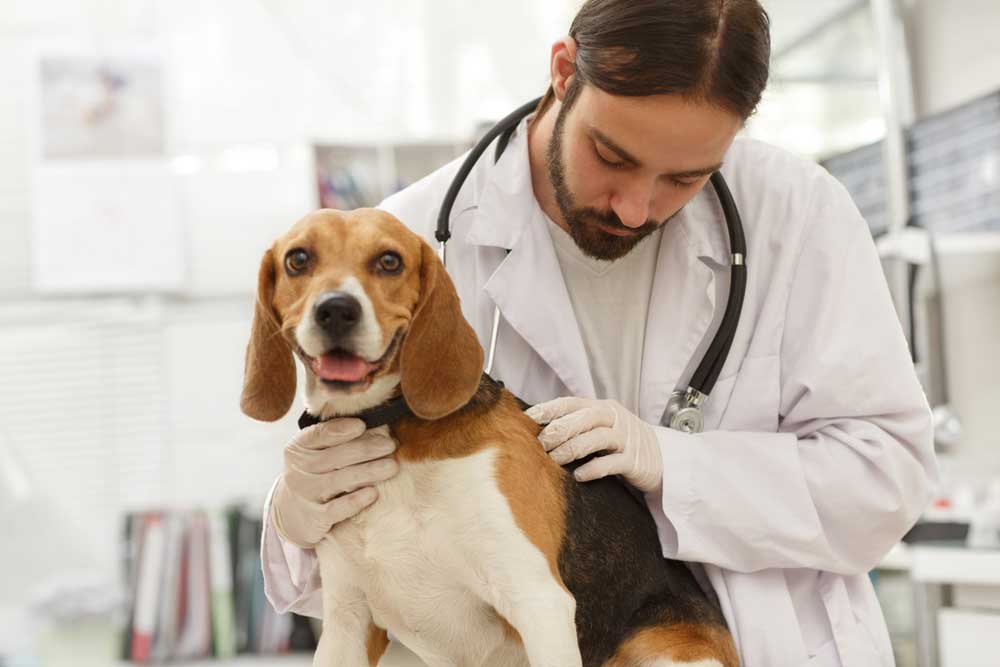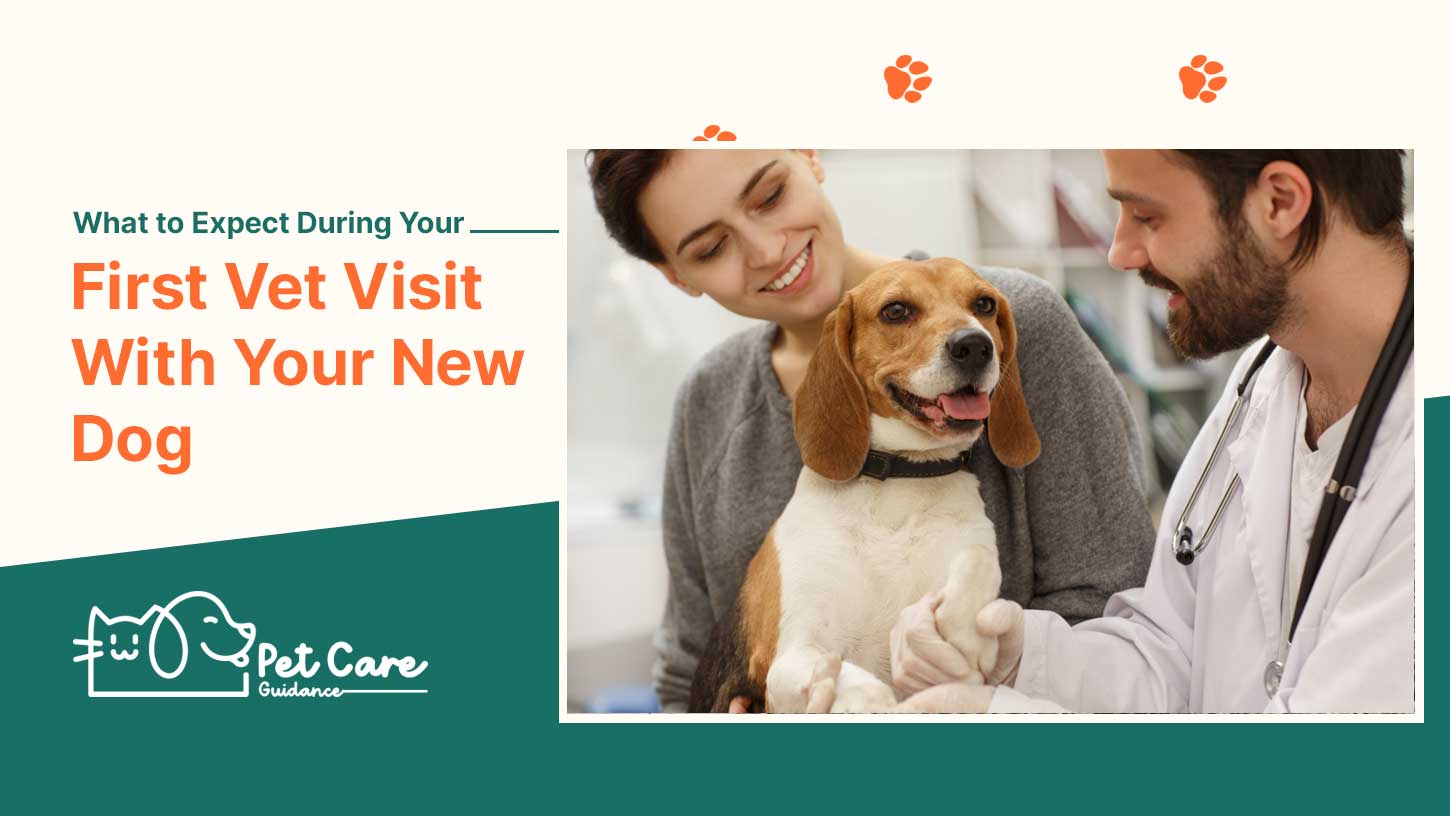During your first vet visit with your new dog, expect a thorough examination of their heart, lungs, eyes, ears, nose, skin, fur, and stomach, as well as vaccinations. It is important to bring your dog’s medical history, any medications or supplements they are taking, and the food they are being fed to provide the vet with necessary information.
Additionally, playing with your dog or taking them for a walk before the visit can help alleviate nervous energy and prevent accidents. Considering taking your dog in a carrier if they are small enough can also make the visit more comfortable.
Preparing For The Vet Visit

- Gather relevant information about your new dog’s medical history
- Create a list of medications and supplements your dog is currently taking
- Pack a fresh stool sample for the vet to examine
- Bring the food brand and type that you are feeding your dog
The Vet Visit Process
- During your first vet visit with your new dog, you can expect a specific process to ensure your dog’s health and well-being.
- The process starts with an introduction and greeting by the veterinary staff to make your dog feel comfortable.
- The vet will then perform a thorough checkup of your dog’s heart, lungs, eyes, nose, ears, skin, and fur to assess their overall health.
- Vaccinations and preventive treatments will be administered to protect your dog from common diseases and parasites.
- The vet will provide discussion and advice on diet and nutrition to ensure your dog is receiving proper nourishment.
- Examination of your dog’s overall health will be conducted, addressing any specific concerns you may have.
Making The Visit Successful
During your first vet visit with your new dog, it is important to make the visit successful by providing a comfortable and stress-free environment for your furry friend. Here are some tips:
- Pre-visit exercise to burn off excess energy: Engage your dog in physical activity before the appointment to help them relax and reduce any anxiety.
- Consider using a carrier for small dogs: If your dog is small enough, using a carrier can make them feel secure and comfortable during the visit.
- Stay calm and reassuring throughout the visit: Dogs can sense their owner’s emotions, so it’s important to remain calm and offer reassurance to keep your dog at ease.
- Ask questions and seek clarification on any concerns: Your vet is there to help you, so don’t hesitate to ask questions or seek clarification on any concerns you may have regarding your dog’s health or well-being.
Frequently Asked Questions For What To Expect During Your First Vet Visit With Your New Dog
How Do I Prepare My Dog For His First Vet Appointment?
To prepare your dog for their first vet appointment: – Bring all necessary items, like your pet’s medical history, vaccines they’ve had, and a list of their medications and food. – Play with your dog or take them for a walk before the appointment to help burn nervous energy.
– Consider using a carrier if your dog is small enough.
– The vet will listen to their heart, check their eyes, ears, and stomach, and give them vaccinations.
– Ask the vet any questions you have about your dog’s care.
What Will A Vet Do On A First Visit?
During the first visit, the vet will examine your pet’s heart, lungs, eyes, ears, skin, and fur. They will also administer vaccinations if needed.
How Soon Should You Take Your New Dog To The Vet?
It is recommended to take your new dog to the vet as soon as possible for a check-up and vaccinations.
How Do I Prepare My Dog For The Vet?
To prepare your dog for the vet, follow these steps:
1. Play with or walk your dog before the appointment to burn off energy and prevent accidents.
2. Consider using a carrier if your dog is small enough.
3. Bring all necessary items, including medical history, vaccination records, medications, and the food you’re feeding them.
4. During the visit, the vet will check your dog’s heart, lungs, eyes, ears, skin, and fur. Vaccinations may also be given. Preparing your dog for the vet helps ensure a comfortable and successful visit.
Conclusion
As you embark on your journey with your new furry friend, it’s important to be prepared for their first vet visit. This initial appointment is crucial in establishing a foundation for your dog’s overall health and well-being. During this visit, expect the vet to conduct a thorough examination, checking everything from their heart and lungs to their eyes, ears, and stomach.
Vaccinations will also be administered to protect them from common diseases. Remember to bring all necessary items, such as a fresh stool sample, any medications or supplements your pet is currently taking, and information about their diet. This will help the vet understand your dog’s medical history and provide them with the best possible care.
By following these guidelines, you can ensure a successful and informative first vet visit for your new dog. Here’s to many happy and healthy years together!


